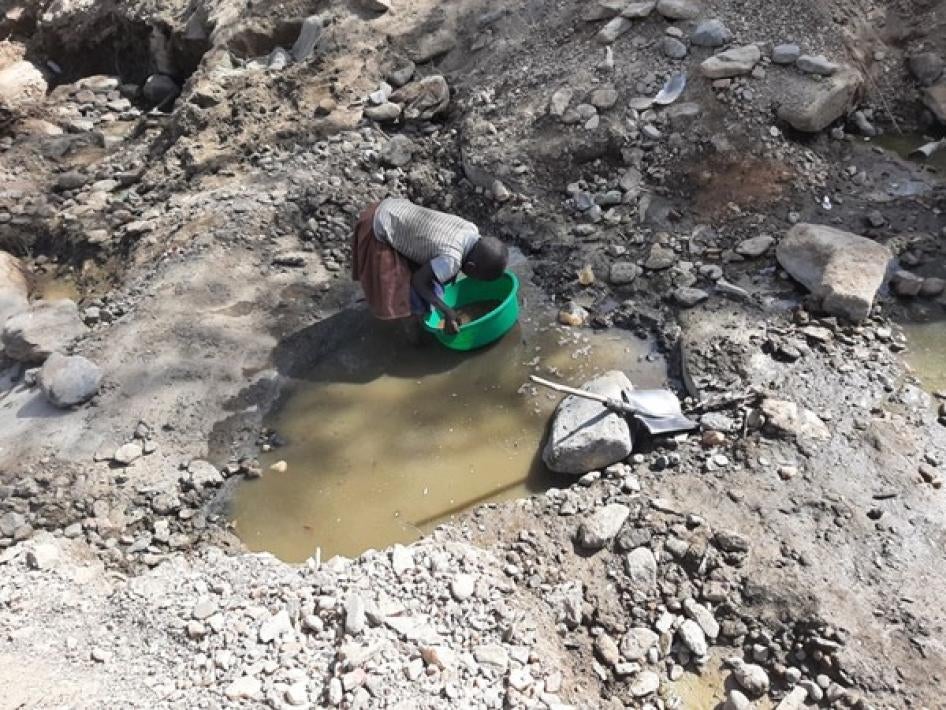“Solomon” is 14, but he works like an adult. He toils in a small gold mine in northern Ghana, 12 hours a day. " Carrying the ore is hard work,” he told us. “I often feel pains.”
Since the onset of the Covid-19 pandemic, with the resulting breakdown in many families’ incomes, child labor has increased in many countries around the world. A new report from Human Rights Watch finds that children are doing exploitative and dangerous work, suffering health damage, and dropping out of school due to increasing poverty in Uganda, Ghana and Nepal.
Child labor is also present in the global supply chains of German companies. Children in other countries mine minerals, sew clothing, and grow tobacco that is consumed in Germany. Voluntary efforts by companies to clean up their supply chains are evidently not enough: According to a detailed study, over 80 percent of companies in Germany are not doing enough to respect human rights in their supply chains.
The supply chain law proposed by the German government would introduce minimum human rights standards in the supply chains of major companies and could thus help protect children against exploitation in global supply chains. Parliament is expected to vote on the law in June, and there are chances that it will pass, after supporters and opponents of the law recently agreed on a compromise text.
While this is good news, the law is most likely not going to be as effective as hoped. It only requires companies to check human rights risks related to their direct suppliers, and not those further down the supply chain, where the most serious violations, including child labor, often occur. For such indirect suppliers, the law requires companies to conduct only "incident-related" human rights due diligence when they become aware of substantiated abuses. The draft law is also limited in scope: It will only apply to large companies with 1,000 or more employees, and it does not provide for liability in the event of violations.
The Supply Chain Act is an important and long overdue step in the right direction. It makes it clear that corporations will be held accountable. But hopefully it is not the final step. A robust law should require due diligence for the whole supply chain, include a liability clause, and apply to companies with 250 or more employees. Improvements are necessary so that boys like Solomon can leave the mine and go to school.










